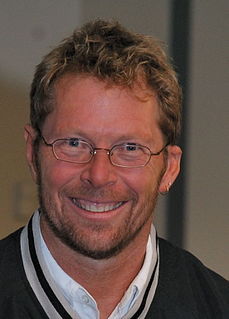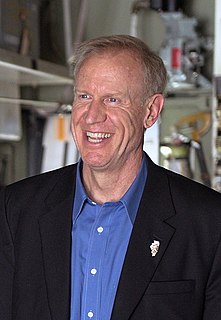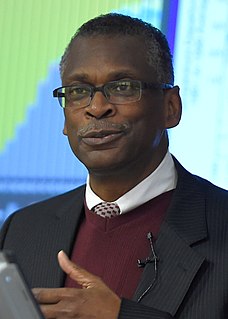A Quote by Chris Sununu
Regardless of fuel type or technology, every major energy project must face the challenge of siting infrastructure.
Quote Topics
Related Quotes
Even if I had money to invest I wouldn't invest it in oil companies - - or their bankers, suppliers, customers ... really that means the whole stock market. I'm not opposed to divestment, but I think by itself it won't get very far. The demand is still there, the fossil fuel infrastructure is still there. Where I would like to see our political energy go is to stop ecocide on a local and bioregional level. Each new energy project involves horrible abuse of mountaintops, groundwater, forests, etc., because all the easy resources have already been extracted.
The United States must recognize that access to reliable and affordable energy is the basis for economic expansion - and global competitiveness. And the nation must move from discouraging fossil fuel development - which is largely our approach today - to enabling it. We need all forms of energy to keep our economy strong.
...A one-pound box of prewashed lettuce contains 80 calories of food energy. According to Cornell ecologist David Pimentel, growing, chilling, washing, packaging, and transporting that box of organic salad to a plate on the East Coast takes more than 4,600 calories of fossil fuel energy, or 57 calories of fossil fuel for every calorie of food.

































